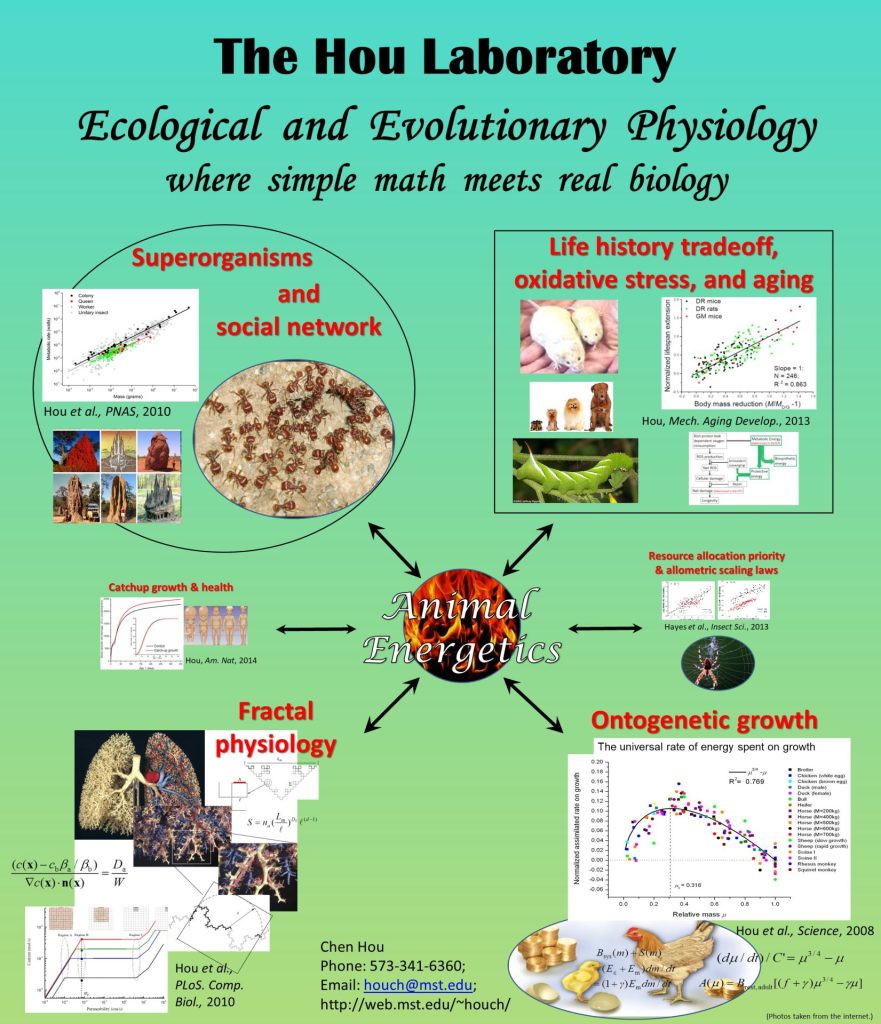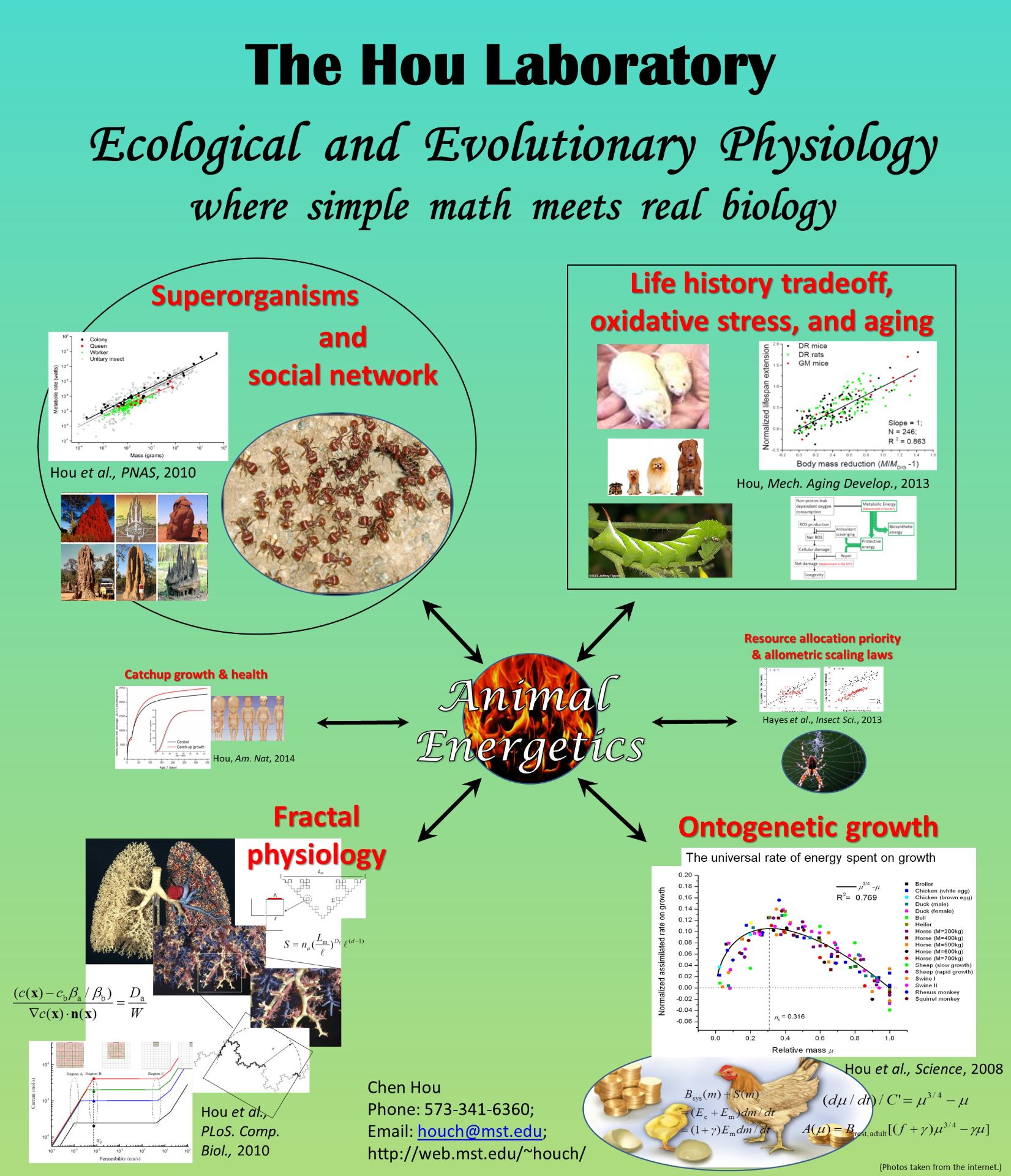
The Hou lab has broad research interests in the field of ecological and evolutionary physiology with a focus on how animals’ energy budgets shape their life history traits, and how they alter the budgets to adapt to changes in environment. We develop quantitative and predictive models based on first principles and test them with real physiological data, investigating the energetics of a wide range of biological processes from cellular level to ecological level, including ontogenetic growth, cellular oxidative damage, aging, colonial living of social insects, etc.
Taking theoretical, empirical, and comparative approaches, we are currently pursuing three avenues of research.
Area I. Alteration in energy allocation strategy under environmental stresses.
Animals’ health is largely determined by the amount of energy allocated to somatic maintenance, which in turn is determined by animals’ energy allocation strategies. While a large amount of research has focused on the genes in model organisms that modulate cellular damage and health, calls have been made repeatedly for assaying energetic processes in species with different life histories and under different environmental stresses. We have developed a theoretical model for this purpose. The model’s predictions were strongly supported by data from dozens of species.
We have also applied the model and conducted comparative studies on insect species experiencing environmental stresses, such as low nutrition level and/or fluctuating temperature.
One of the novel and significant findings in my lab is that an astonishingly large variation exists in the energetic cost of biosynthesis among different species. This cost may result in different tissue vulnerability to oxidative insults. This finding opens a door to the future research on the relationship between biosynthesis and health maintenance.
Area II. Complex relationship between energy expenditure, health, and longevity.
This relationship has received attention in the public and in the scientific community. Empirical studies and theoretical considerations have yielded a series of controversial results. This is because the linearity between energy expenditure, cellular damage, and lifespan assumed in previous studies are not sufficient to understand the complexity of the relationship. We have developed a theoretical model, which, for the first time, quantitatively reconciles a broad variety of seemingly contradictory empirical results, and has been well accepted in the community.
The model also made a novel and counterintuitive prediction: during growth, oxidative damage is more sensitive to the changes in biosynthetic rate than that in metabolic rate. We have conducted empirical tests of the model on an insect species. The results strongly support the prediction. This research highlights the importance of early development, especially the energetic cost of growth, in adult well-being and lifespan, and offers a framework to future research along this line.
Area III. Energetics and life history of colonial living in social insects.
We also try to understand how colonial properties at a higher level, such as colony size and colony energy budget, constrain and influence the behaviors, physiology, and life history of individual members, including division of labor, growth, reproduction, and information exchange. We performed respirometry and video-image analysis on groups of ants simultaneously. Our work was the first one in this area that directly linked the individual behavior to group energetics. A TEDx talk based on the results of this study that Dr. Hou gave in April 2019 was warmly welcomed by the general public.
